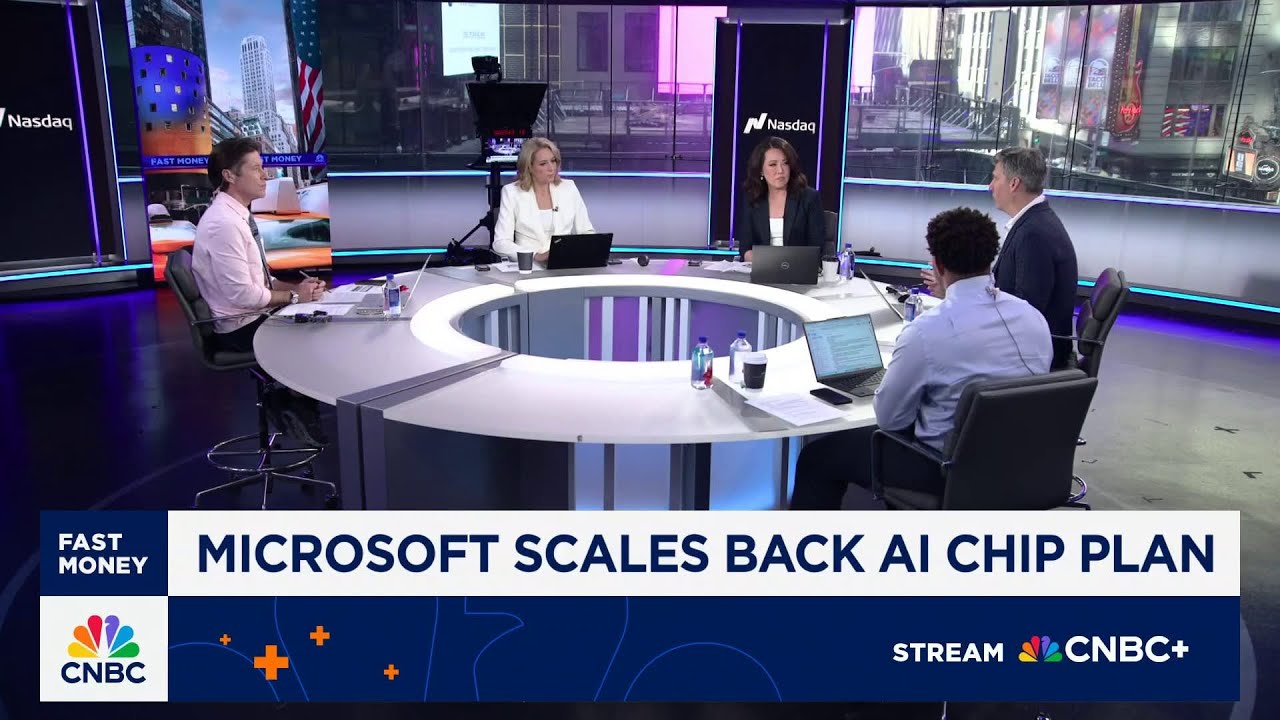Steve Kovac views Microsoft’s layoffs as expected but highlights the significance of its delayed AI chip designs, which may limit market opportunities for chipmakers like Broadcom and Marvell while reinforcing Nvidia’s dominant position in the AI chip space. Despite competitive pressures, Nvidia remains central to AI processing demand, with promising investment prospects in chip equipment suppliers and semiconductor manufacturers like TSMC, while Microsoft’s situation is seen as neutral and manageable.
In the discussion on Microsoft’s recent layoffs and AI chip developments, Steve Kovac emphasizes that the layoffs themselves are not surprising given the company’s efforts to improve productivity through its applications. More significant, however, is Microsoft’s decision to delay its chip designs. This move suggests that Microsoft’s internal chip capabilities may not be as competitive as investors in companies like Broadcom and Marvell had hoped. The anticipated total addressable markets (TAMs) for these chipmakers might not materialize as expected, reinforcing Nvidia’s dominant position in the AI chip space.
Kovac highlights the complex relationship between Nvidia and its major customers, including Microsoft, which is also a competitor in data centers. This dynamic creates a “love triangle” where Nvidia remains a key player despite competition from its own customers. The ongoing developments point to positive news for Nvidia, which has seen its market capitalization soar to around $4 trillion, a milestone few predicted. Kovac suggests that while Nvidia’s stock has surged, investors might want to explore opportunities further down the supply chain, such as chip equipment providers like Applied Materials (Amat), which could offer more value as the primary chip manufacturers’ stocks appear fully valued.
The conversation also touches on the challenges of competing in the AI chip market, particularly in database chips, which are Nvidia’s core strength. Despite reports that tech giants like Amazon, Microsoft, and Google are developing their own chips, Nvidia’s position remains strong. The demand for processing power continues to grow, and Nvidia sits at the center of this trend. This sustained demand is a critical factor supporting Nvidia’s stock and the broader AI chip ecosystem.
Regarding the semiconductor supply chain, Kovac expresses optimism about companies like TSMC, especially given their advanced packaging capabilities, which have improved recently. He views these suppliers as attractive investment opportunities amid the current market environment. While Microsoft may be slowing down in some areas, Kovac believes the company remains engaged in many innovative projects, and the overall demand for AI and chip capacity is not diminishing. This environment underscores Nvidia’s leadership and also highlights AMD’s recent strong performance, driven by successful product announcements and underestimated chip capabilities.
Ultimately, Kovac characterizes the news as neutral for Microsoft. He suggests that a more concerning scenario would have been if Microsoft admitted to ongoing design problems while continuing to invest heavily without expected returns. The current situation, with delays but continued progress, is seen as manageable. For Nvidia, the complexity of chip design and manufacturing is becoming more apparent, and this factor may not yet be fully reflected in stock prices. The discussion hints at upcoming insights from Intel and suggests that the market may need to adjust its expectations for 2026 and beyond based on these developments.
